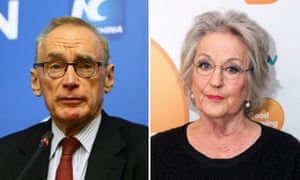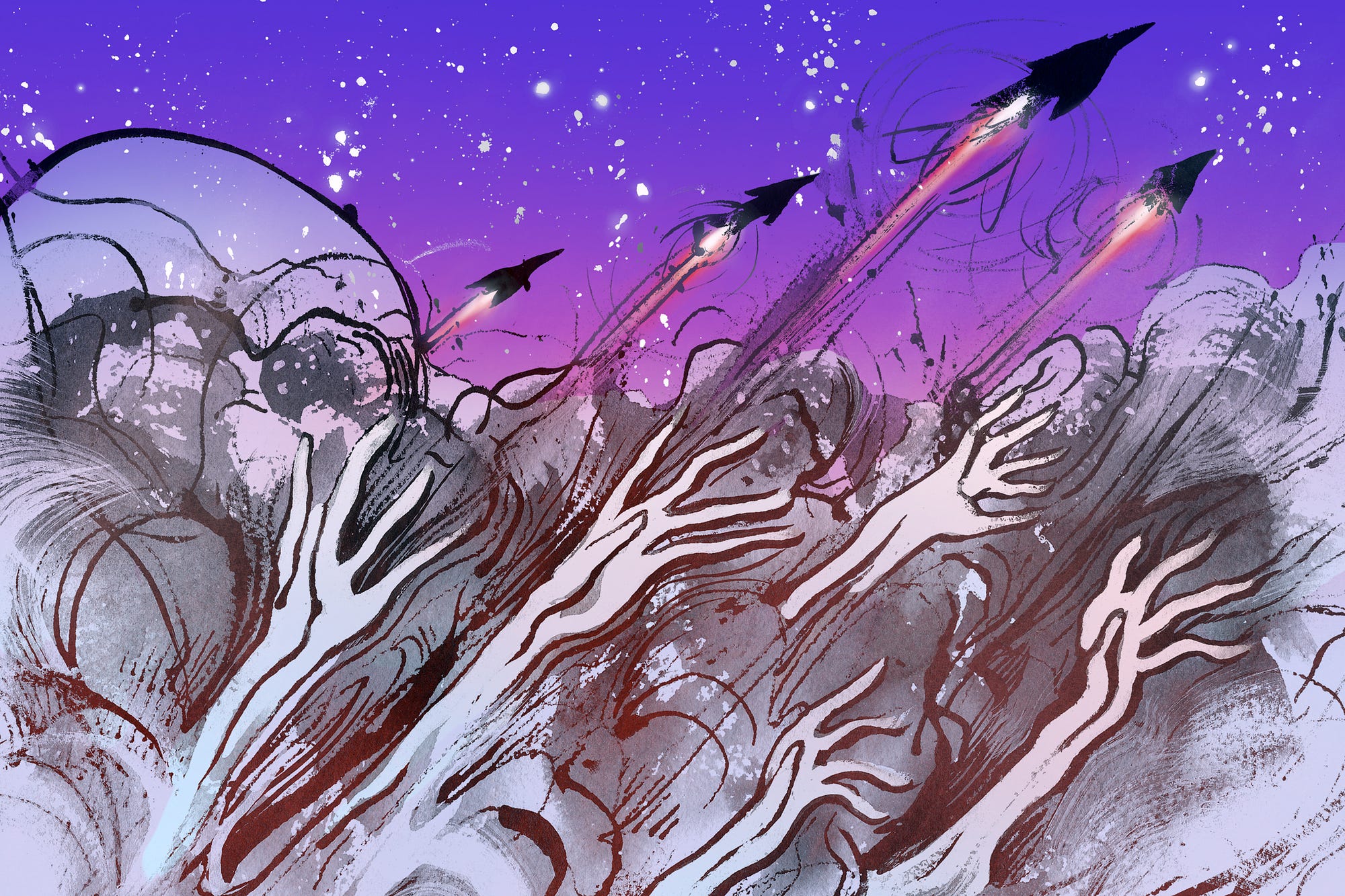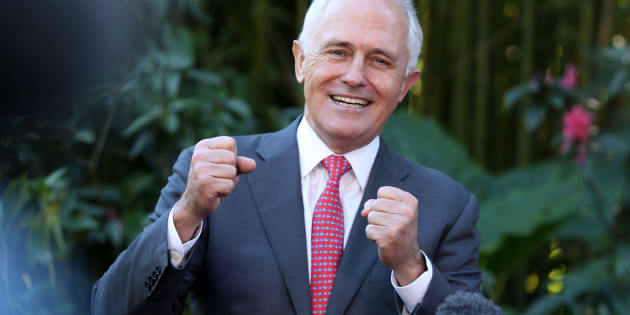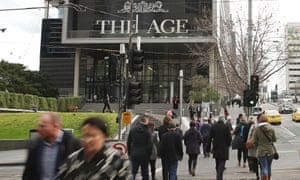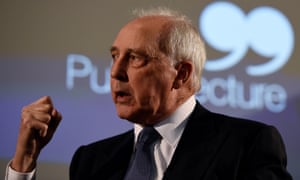
Every effort was made to reach an understanding.
In the end the world evolved beneath his feet.
There was no recompense.
Bite the hand that feeds you.
It could be true. In the end they did not know.
In the end what astonished Old Alex the most was the population's resilience, the way people adapted to a malevolent government, blundering, unthoughtful, unaware of what it did; an organism constructed of straw whose weight and impact went well beyond its measure. As if in these malevolent times there could be a higher purpose.
As if, despite universal distrust of those who ruled them, people adapted in their burrows, lived their quiet lives, stayed out of focus.
In essence they, too, were hiding. Or staying out of the way.
"Nothing works."
He heard it all the time now. "Nothing in this country works."
There was never any disagreement.
But having lost faith in any external force, such as government, such as God, instead humans turned to their normal mammalian duties; rearing children, going to work, taking care of the yard.
Meeting up with old mates on an indiscriminate, almost random basis.
For people formed networks when anchored to one place.
There was always one place; the universal and the specific. He belonged in the slipstream high above.
"Thank God there's no news in Australia," he would sometimes mutter at his car radio, the useless Australian Broadcasting Commission.
One billion dollars and 6000 employees, and that was the best they could do? Reruns of Antique Roadshow in Prime Time. Endless regurgitation of government narratives and government propaganda.
No one ever told them that feminist advocacy did not constitute news, and in this peculiar post-truth world every bizarre multi-million dollar research exercise designed to inflame moral panic by underpinning anti-male diatribes, a rhetoric of distaste, patriarchal abusers and toxic masculinity, as if it was entirely justifiable for a man to go to work in a factory or to drive a truck all day; to support this ideologically driven garbage so inimical to their interests.
A post-truth world.
An ideologically driven world.
Brainless, the bureaucrats were so impressed by what they heard in their red-brick colleges they went forth and prosletysed, bound to government by their tax-payer funded jobs.
Purloined by taxpayer funded Marxist rhetoric.
Convinced they were correct.
How was the deliberate creation of moral panic or, as it used to be called, mass hysteria, on someone else's coin even remotely justifiable?
They never thought that far. They collected their pay checks and did what they were told.
The banality of evil.
The transformation of the working class male into the oppressor was a feat of intellectual gymnastics, or was it sleight of hand, that bureaucracies achieved with the paychecks of those very same men.
There we were now, crucified. Because so much of public debate had withdrawn behind curtains of certainty.
They knew because their professors knew.
They knew because their generation was sent to correct the injustices of the past.
Their historic missions.
Inevitably, because it was freezing half way through spring, there would be some reference to climate change, as they sat shivering in a beer garden washed over by disinterest and contempt.
There was nothing anyone could say to change their minds.
They knew what the science said.
No they didn't.
They knew how evil had been the past.
No they didn't.
There came a time. We opened up. Everyone laughed. Held back their disdain. A miracle evoked in the Potomac, for there were no rivers left in Australia, none whose name anyone knew.
Swamped by other cultures, the eradication of the Australian accent well in train, being a migrant a primary qualification for a job, destruction of tradition, there was no joint project, not anymore.
Swamped by strangers, this was not a country built with pleasure, by the joint efforts of its peoples.
It was a country destroyed by bureaucratic ideologues and a hapless, shameless political caste.
Not one had the nous to stand up to their bureaucrats.
And they stood forth and said: you must agree.
Instead the populace went about their lives as if the toxic ideologies spewing forth from the government did not exist.
They formed families. They loved each other. They had children. They went to work.
The anti-family ideologues and taxpayer funded extremists went about their days; and in the end everybody stopped listening to them.
Thank the Lord.
Once upon a midnight dreary, while I pondered, weak and weary,
Over many a quaint and curious volume of forgotten lore—
While I nodded, nearly napping, suddenly there came a tapping,
As of some one gently rapping, rapping at my chamber door.
“’Tis some visitor,” I muttered, “tapping at my chamber door—
Only this and nothing more.” Edgar Allan Poe.
And so it all went furling into remote possibility, just like that.
A hundred million years, he muttered in what felt like a half-drugged sleep, and then returned to old incantations.
"Dishonest, incompetent, corrupt.""Trust no one."
There were always responses.
Perhaps none of them were real.
"All is forgiven."
"I apologise. We apologise."
"Trust no one," he responded, yet again.
Far away, a swan dive.
On show now.
The inspection team had been and gone.
No one asked his permission.
No one explained what was happening.
They never had that common decency. Never.
The traps were laid bare. The surveillance created its own narratives.
Like ice flows, a kind of liquid air passed over them, time passing; currents of time.
Far below. Far below.
THE BIGGER STORY:
"How did you get home? 'I don't remember,'" Mr. Trump said at the rally in Southaven, appearing to alternate between acting as a questioner and giving an impression of Ford. "How did you get there? 'I don't remember.' Where is the place? 'I don't remember.' How many years ago was it? 'I don't know.'"
Speaking at an event hosted by The Atlantic, Trump ally senator Lindsey Graham said that while he "didn't particularly like" the President's remarks about Dr Ford, he slammed Democrats for their treatment of Mr Kavanaugh..
To a chorus of audience boos Mr Graham replied: "Yeah. Well boo yourself."In parroting comments made during the investigation into Bill Clinton, Mr Graham said of the allegations against Mr Kavanaugh, that "this is what you get when you go through a trailer park with a $100 bill".




